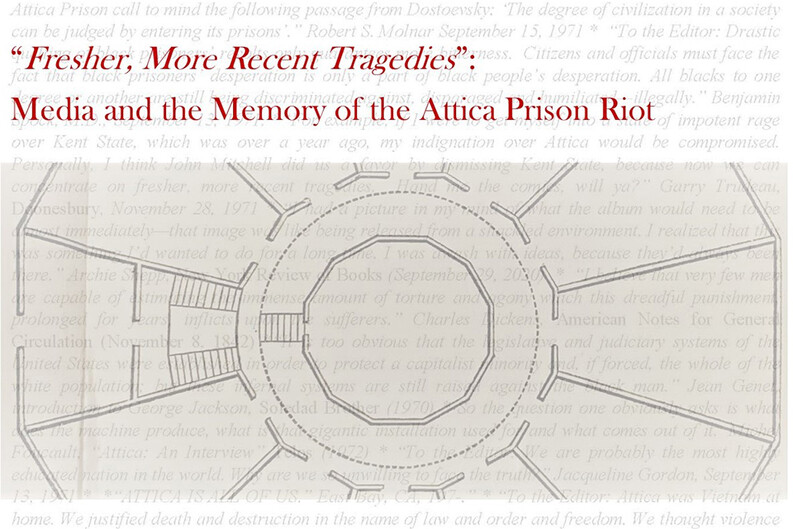Library Exhibit Chronicles Responses to Attica Uprising

A new exhibit at the Lillian Goldman Law Library chronicles some of the responses to the Attica prison uprising of 1971, prompted by its 50th anniversary.
“Fresher, More Recent Tragedies’: Media and the Memory of the Attica Prison Uprising4” gets its start from philosopher Michel Foucault’s visit to the Attica Correctional Facility in 1972. A few months prior, audiences across the U.S. and the world watched and read about the violent series of events that unfolded at the western New York State prison from September 9–13, 1971.
The new exhibition situates responses to the events within the media history of prison observations in American popular culture. One result of Foucault’s visit was the publication of Surveiller et punir / Discipline and Punish (1975), his statement on the relationship of state power to the control of the individual.
“Jeremy Bentham’s idea of the panopticon and the ‘inspection principle’ was tremendously powerful for Foucault,” said Rare Book Librarian Kathryn James, who curated the exhibition. A panopticon is a circular prison with a central vantage point for guards where all the prisoners can be observed at once. The exhibition draws on the Rare Book Library’s extensive collection of works by Bentham. It also includes a new acquisition: the early American editions of Charles Dickens’s American Essays for General Circulation, which document Dickens’s visit to the Eastern State Penitentiary in Philadelphia, which was built on the panopticon model.
The exhibit is a companion to the display in the Library’s main reading room on the Attica uprising, curated by Associate Director for Research and Instructional Services and Lecturer in Legal Research Jordan Jefferson with Arthur Liman Professor of Law Judith Resnik and the Arthur Liman Center for Public Interest Law5.
The exhibition takes its name from a November 28, 1971 Doonesbury strip by Garry Trudeau on the politics of attention in the face of political atrocity.
“This is the same question asked, to very different responses, by Foucault, Bentham, Dickens, and others in the exhibit,” James said.
Where Frederick Douglass observed that power conceded nothing without a demand, Trudeau’s strip adds that power also waits for attention to turn elsewhere. In the strip, Trudeau’s character, Mike Doonesbury, observes that he has to ration his political attention, to be able to forget even recent political atrocities, in order to respond to “fresher, more recent tragedies” like the uprising two months earlier at Attica.
The exhibit is on view through October 10, 2021 on Level 2 of the Lillian Goldman Law Library.


